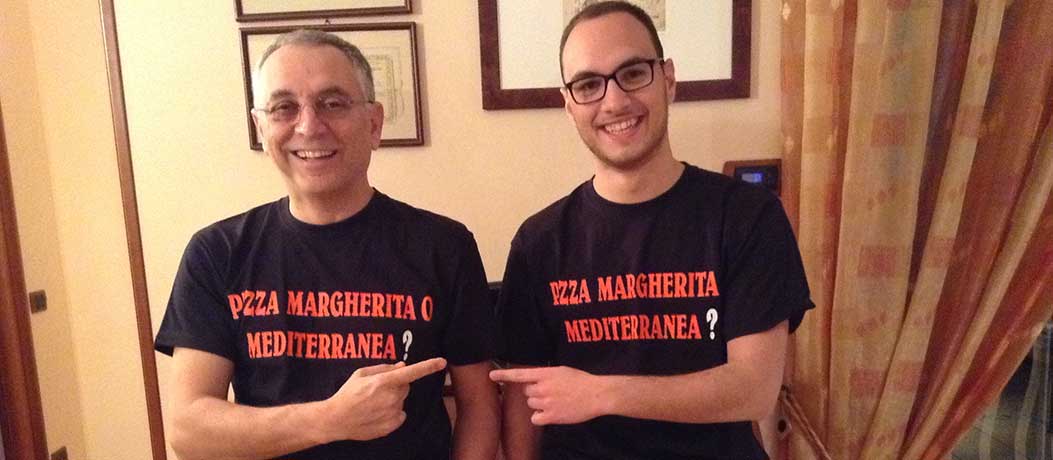by Andrea and Enzo Coccia
If we ask most people which is the authentic Neapolitan pizza, most of them will reply the margherita. An obvious answer where the technique, the oven, the toppings and every single characteristics of the final product are not taken into account.
Many people even make the origin of the Neapolitan pizza correspond with the birth of the Margherita. There is no historic doubt that the pizzaiolo Raffaele Esposito prepared three different pizzas for the Queen Margherita of Savoy. It happened on June 11, 1889 in the summer residence of the Savoy family at Real Bosco of Capodimonte. The day after, the pizza garnished with the tomato sauce and the mozzarella was named by the Neapolitans: Margherita.
Analyzing the ethnological term “mediterranean”, we find out that it comes from afar, from a variable historical memory represented by a model made for health and medical purposes, but it helps us to understand food as a complex reality linked to the gastronomic culture of the Mediterranean people. The Neapolitan pizza is not defined by one and the only topping, but a system of ingredients and skills which are the result of great trade paths in the Mediterranean among the countries as Europe, the Americas, Asia and Africa.
The Mediterranean diet is a nutritional model discovered by the American scientist Ancel Keys in the middle of the 20th century. In November 2010, it was included in the list of Intangible Cultural Heritage of Humanity by UNESCO, the first social and food heritage to receive the prestigious UNESCO acknowledgement. Five years after the UNESCO decision, to celebrate it, the municipalities of Pollica and Acciaroli organized the White Night of the Mediterranean Diet, starting on Friday November 13th with some cooking shows and thematic meetings, while today the University Suor Orsola Benincasa of Naples has arranged a conference to divulge the value and usefulness that this nutritional model has for our health. The event focused on two issues: on one hand innovation and identity, on the other hand the problem of the counterfeiting and the imitation were debated.
Beyond the creation of bread, which is an important element of this nutritional model, I also believe that the Neapolitan pizza invention has the same relevance for the Mediterranean diet and a healthy eating.




















